Big Red Book
Celebrating television's This Is Your Life
Barry JOHN (1945-2024)
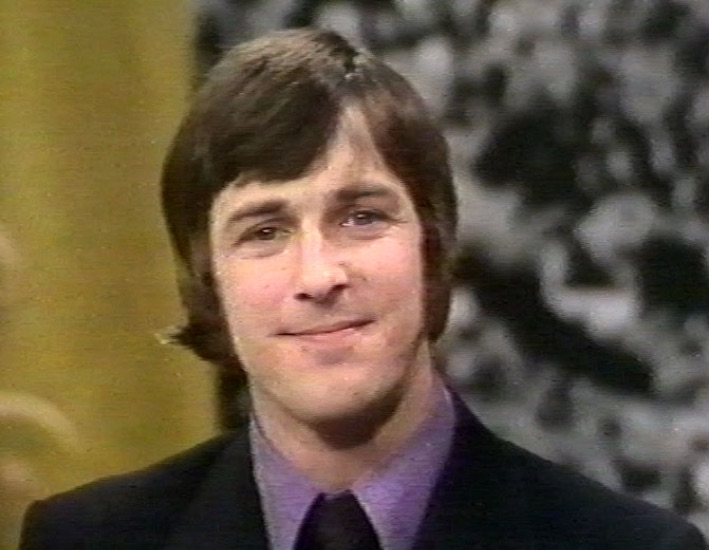
THIS IS YOUR LIFE - Barry John, rugby union player, was surprised by Eamonn Andrews as he left the pitch following an international rugby match between Wales and England at Twickenham Stadium.
John began his rugby career as a schoolboy playing for his local team Cefneithin RFC before switching to the first-class team Llanelli RFC in 1964. Three years later, John moved to Cardiff RFC, where his partnership with Gareth Edwards became one of world rugby's most famous half-back pairings. They played together at all levels of the sport, for Cardiff, Wales, the Barbarians and in 1968 for the British Lions' tour of South Africa.
John was part of the Wales national team that won the 1971 Five Nations Championship, the first time Wales had achieved a Grand Slam win since 1952. He cemented his reputation as one of the sport's greatest players with his pivotal role in the British Lions winning tour over New Zealand in 1971, playing in all four Tests and finishing as the Lions' top Test scorer.
"Oh no! What a time! I don't know what to say, honestly! I'm glad I won today!"
programme details...
- Edition No: 318
- Subject No: 319
- Broadcast date: Wed 19 Jan 1972
- Broadcast time: 7.00-7.30pm
- Recorded: Sat 15 Jan 1972
- Venue: Euston Road Studios
- Series: 12
- Edition: 10
on the guest list...
- Janet - wife
- Cliff Morgan
- Will - father
- Vimy - mother
- Del - brother
- Alan - brother
- Clive - brother
- Madora - sister
- Diane - sister
- Carwyn James
- Edryd Jones
- Gareth Edwards
- John Lloyd
- JPR Williams
- Gerald Davies
- Arthur Lewis
- John Bevan
- Jeff Young
- Barry Llewellyn
- Delme Thomas
- Geoff Evans
- Dai Morris
- Mervyn Davies
- John Taylor
- Peter Davies - in audience
- members of the Moneath Mar male choir - in audience
- Bob Burgess Filmed tribute:
- W J Jones
related appearances...
- Gareth Edwards - Apr 1976
- Max Boyce - Feb 1978
- John Toshack - Feb 1982
- Geraint Evans - Jan 1984
production team...
- Researcher: Ian Black
- Writer: Ian Black
- Director: Margery Baker
- Producer: Malcolm Morris
- names above in bold indicate subjects of This Is Your Life
tackling rugby's top names
New producer Malcolm Morris reveals more behind-the-scenes secrets
The secret life of Eamonn Andrews
Weekend Magazine feature on the show's popularity
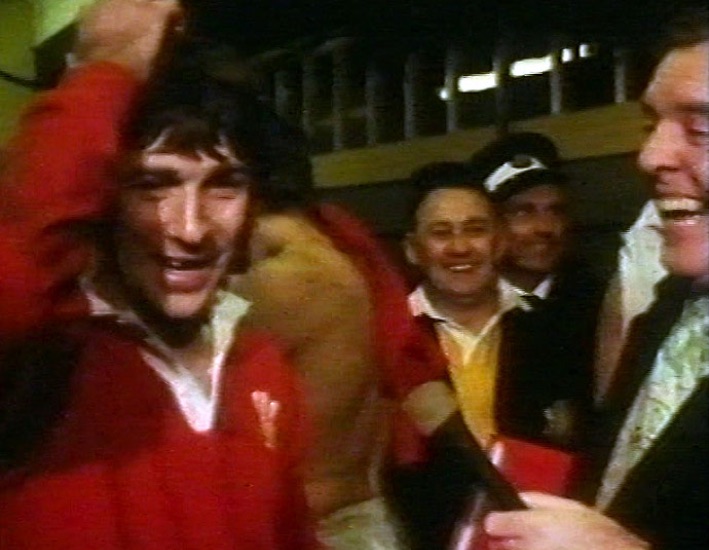
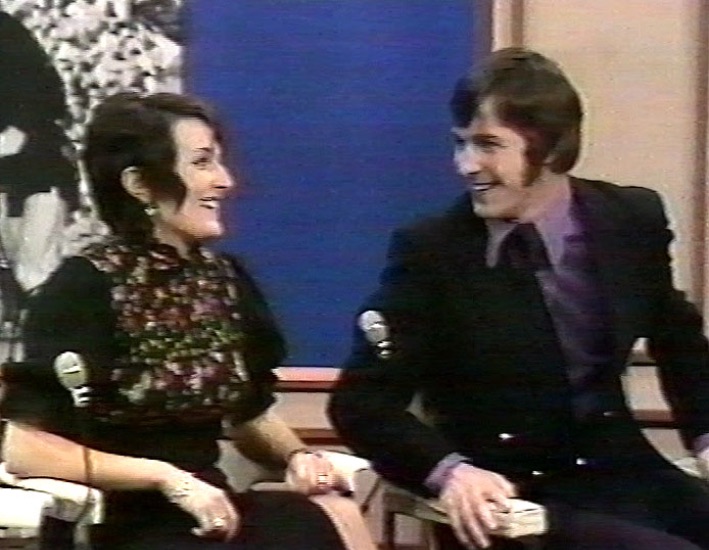
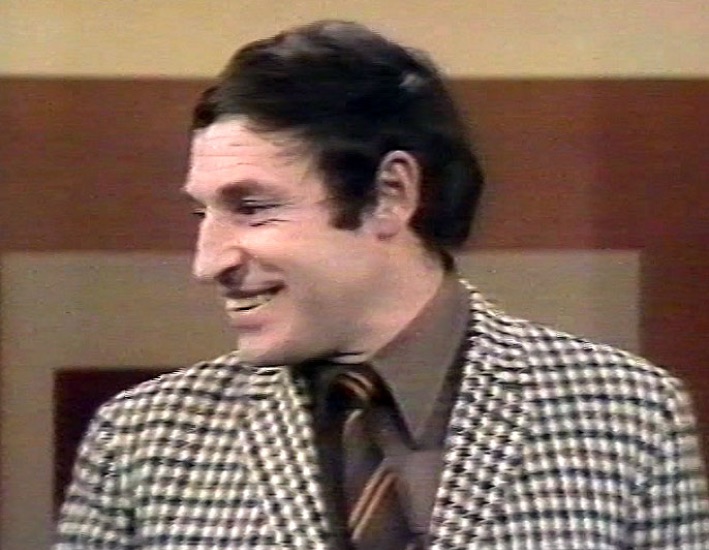
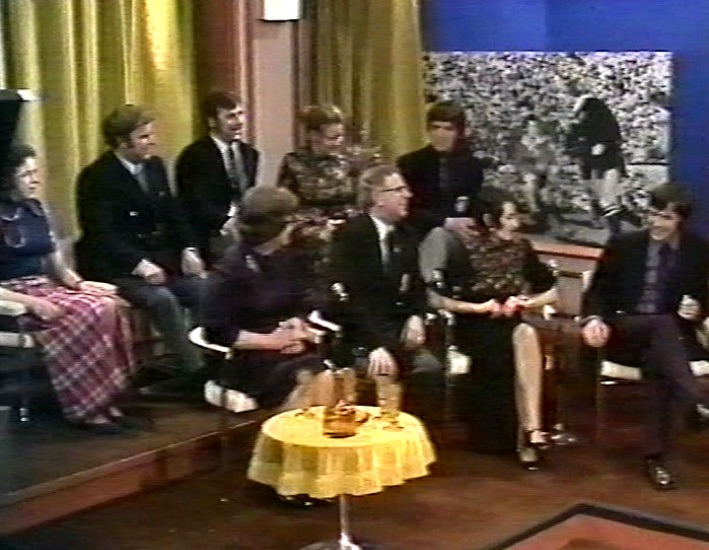
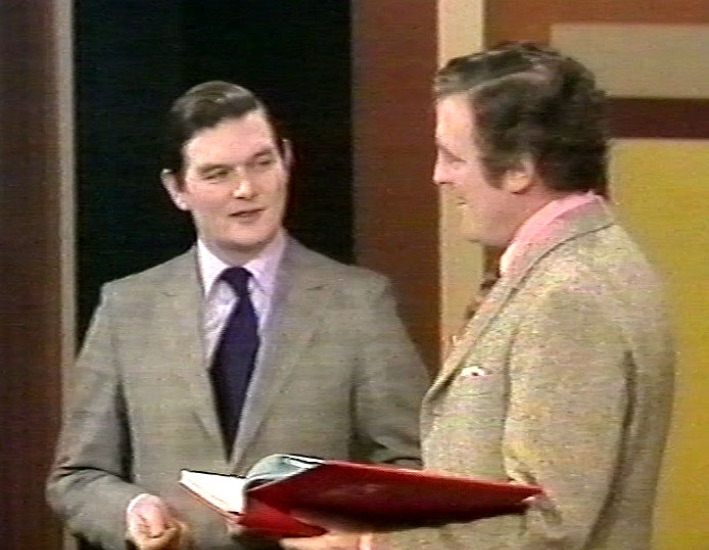
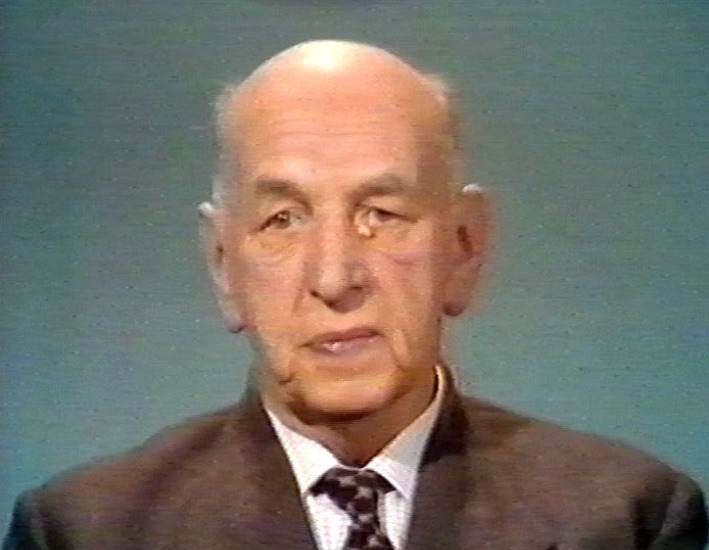
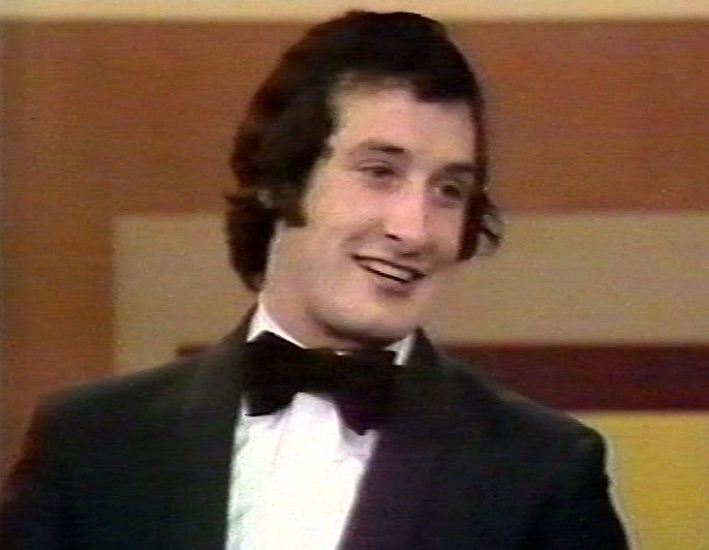
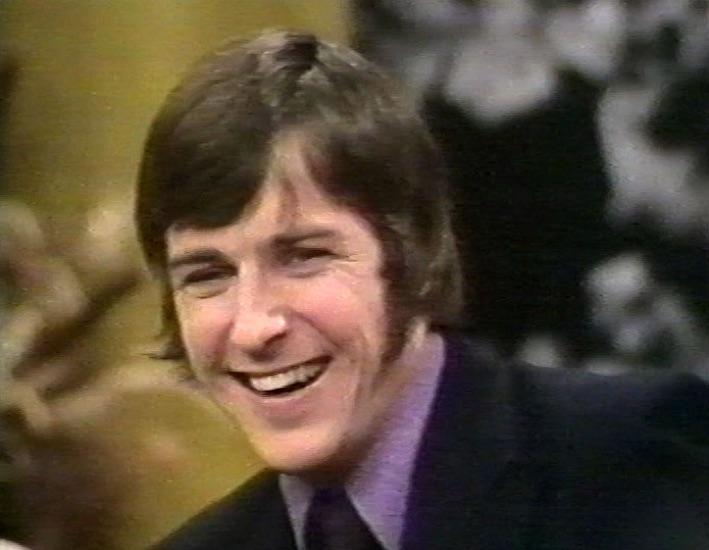
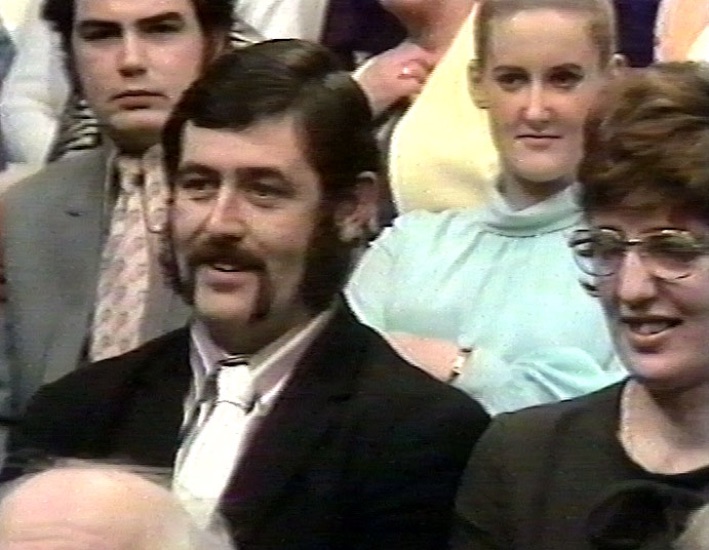
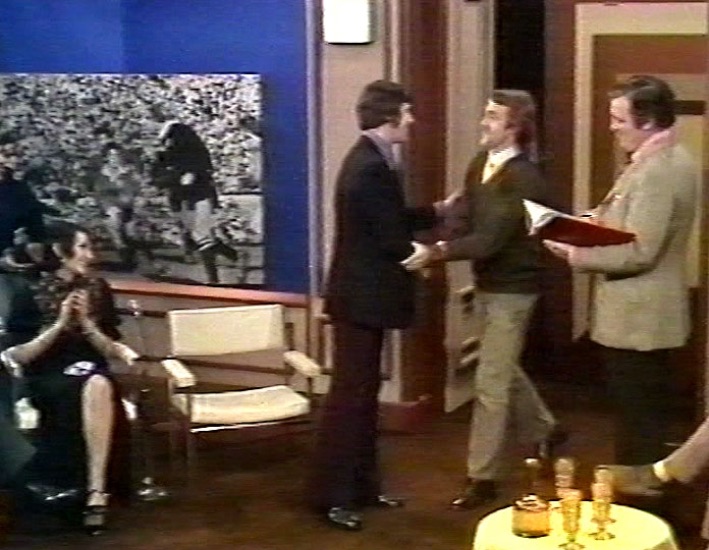
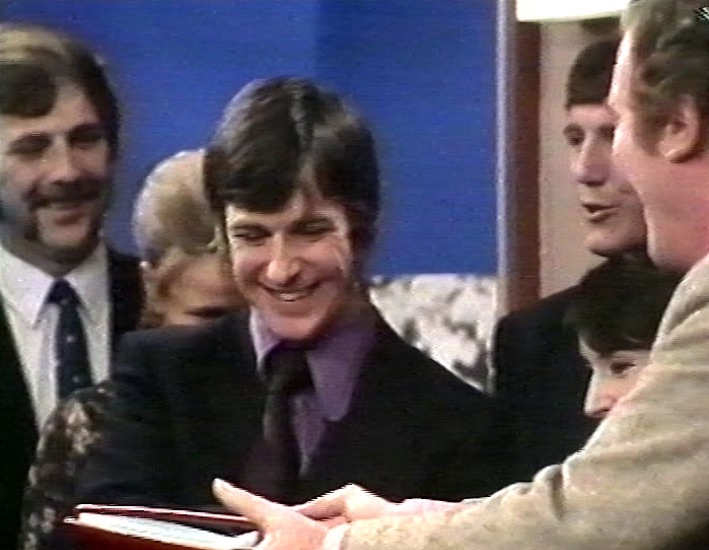
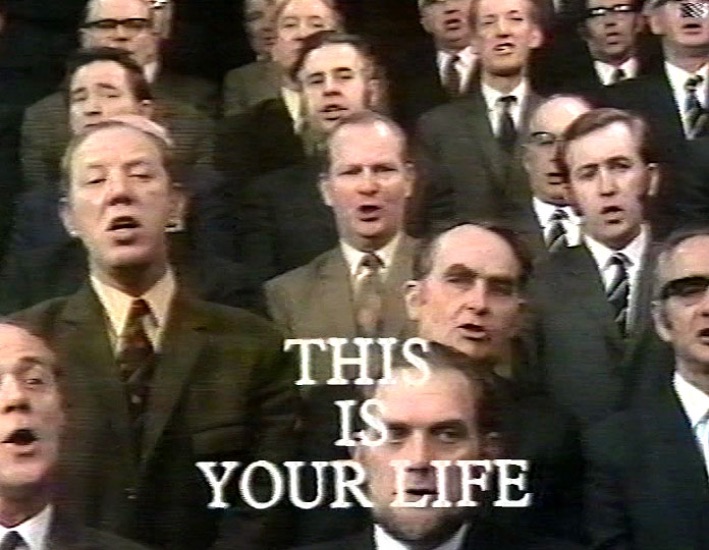
Screenshots of Barry John This Is Your Life
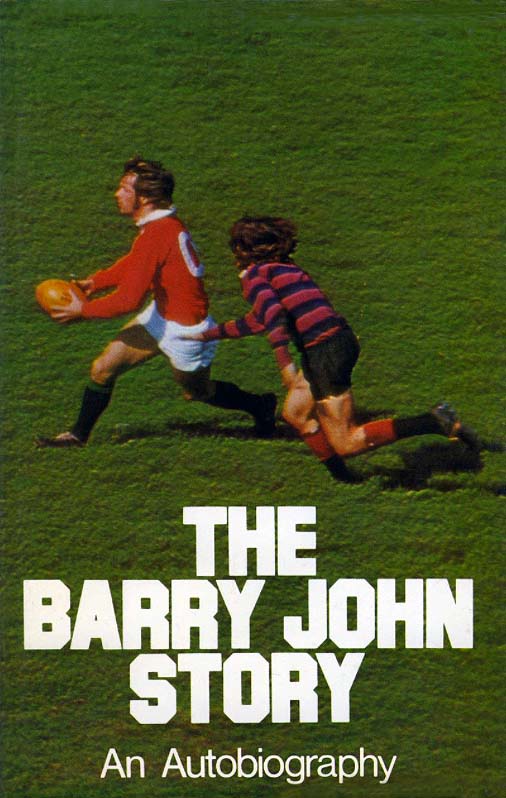
A small indication of rugby's new wave of popularity was that John Dawes, the Welsh skipper, and I got into the top ten of a number of sports polls in 1971-2 and that more top rugby players became known to the general public. My appearance as the subject of a This is Your Life programme, when the British Lions returned in triumph from New Zealand in 1971, not only promoted me but, more important in my view, it promoted rugby football.
In my last three international matches I scored thirty-five points and I got eight of them against England at Twickenham in January 1972. Before this match I received dozens of notes and letters begging me to play really well. There's something about the Welsh team going to Twickenham that stirs imaginations among Welshmen everywhere. 'You really must beat England,' one letter said. 'It makes me happy for a whole year when you do.' Maybe all this has something to do with long historical memories, with Welshman longing to hit back at the English. Also, of course, people tend to bet rather heavily on the outcome of the matches!
I always loved playing at Twickenham, for the English-Welsh rivalry, with the coachloads and trainloads of Welsh supporters, produced a stirring atmosphere. Moreover, the stadium was something of a happy hunting ground for me - and, indeed, I was never in a side that lost to England. One of the small things I treasure!
Bob Hiller put England ahead with a penalty kick, but I made it six-three with two penalties before half-time and, after that, Wales were on top. John Williams dashed through a gap for a try, which I converted, and I felt that a victory was in the bag.
At the end of every match I always tried to get close to the players' tunnel so that I could make a rapid exit when the final whistle went. It was not that I disliked getting mixed up with the enthusiastic people who ran on to the pitch, but I am not a sixteen-stone giant and the effect of numerous boys and youths smacking you on the shoulders, rubbing your head, clutching your cheeks, jumping on your back, shaking your hands and flapping autograph books in your face can be somewhat disconcerting, if not physically dangerous. And not just dangerous for the players, but for the supporters as well. When I was caught up in those yelling crowds I was very scared that someone would be crushed. If I could not get near the exit at the of the match I always tried to run off with the forwards for protection. Apart from anything else, I always found that the final whistle was like the turning off of a tap. Suddenly all the strength drained from my body and I just could not wait to get off and sit down.
When the whistle went at Twickenham I dashed for the safety of the tunnel, collecting only a few thumps on the back, and straight into the blinding glare of the film and television lights. This time, though, there was something different. Someone stopped me. Eamonn Andrews was there with a microphone and he was saying: 'Barry John, this is your life...'
I hadn't known a thing about it. Jan and the family and all my friends and team-mates had kept the secret perfectly. And those odd telephone calls at home, when people just hung up when I answered, now slotted into place.
I can't say I was able to enjoy the experience much. Certainly I enjoyed meeting old friends, relatives and team-mates. But it was all rather bewildering being on a television programme like this within a few hours of playing in a rugby international. I had to attend a post-match dinner at the Hilton Hotel and there just wasn't the time for me to chat with all the visitors to the show as I would have liked. I remember it as one of the most hectic evenings of my life, with faces popping up for a few words and a handshake, as if they were on a roundabout.
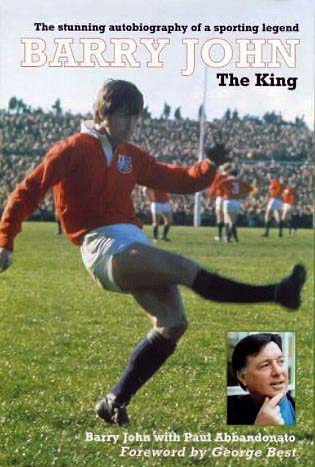
Every day, it seemed, people would rush up to me to say, 'You're the Barry John, aren't you, can we have your autograph please?' I have no problems signing autographs - nearly thirty years on I still willingly oblige people, although when I'm going for an appointment and have to tell people my name, I make sure I say it quietly - but in those days youngsters would frequently knock on my front door asking for signatures. There was one time when, having gone to a garage to pick up a car, I was surrounded by so many people with little bits of paper that I had to get them to write down their names and addresses, put the lot into a big bag and, over a period of weeks, send out literally hundreds of signed photographs.
One of the more bizarre incidents came one Sunday, when four people from Bristol decided their idea of sightseeing for the day was going over to Wales to look at Barry John's house. They could have gone to the zoo, the park, the beach, anywhere, but no - they woke up and decided to seek out BJ's abode. They stopped off in Cardiff, asked where Barry John's house was and duly arrived in our street. I know this because my wife Jan invited them in for Sunday tea and they told us the story!
As this went on around me I had no one to turn to for guidance and advice, apart from George of course, and he had enough problems of his own without worrying about mine, So I began to warn people that this attention was getting too much and that if it didn't stop I might have to walk away from rugby. No one believed me, insisting I simply could not pack it in with so many great days still ahead of me. They just thought it was Barry John getting up to one of his pranks again. But a hoax this definitely was not. Things were getting so bad I was thinking about my future virtually every minute of the day. It had got to the point where I was literally asking referees how many minutes were left in matches and making sure I positioned myself near the players' tunnel so I could avoid the flood of people rushing towards me at the end. Invariably that meant I was the first person down the tunnel and my state of thought was not exactly helped when I walked into the darkness to be met by glaring camera lights after Wales had beaten England 12-3 at Twickenham in 1972. (By the way, I never lost to England - it would have been rude, as a Welshman, to do so?)
I was like a rabbit caught in headlights, temporarily blinded by the sudden brightness. Then out popped Eamonn Andrews brandishing his famous red book. 'Barry John, tonight this is your...' I was used to television lights but this was different, a bit sudden and very disconcerting. I was whisked away by chauffeured car to the studios where Jan, my nearest and dearest and my Welsh team-mates and friends were present for what was a lovely show. Jan had been keeping the secret from me for almost two months and suddenly the silence around the dinner table two weeks earlier began to fall into place. George had had the red book shown to him and I asked our dinner guests if they had seen the show. Everyone went quiet, almost coughing and spluttering, and the hush was only broken by Jan asking, 'Barry, do you want some more peas?' I remember thinking at the time it was an odd question because my plate was already piled high with roast beef and vegetables and I wondered where on earth she expected me to put them!
While it was prestigious to be one of Eamonn Andrews' victims on the show, though, there remained almost a touch of horror about the way the television people had gone into my room while I was playing against England and taken everything away to their studios without me knowing. In truth I found it a bit frightening.
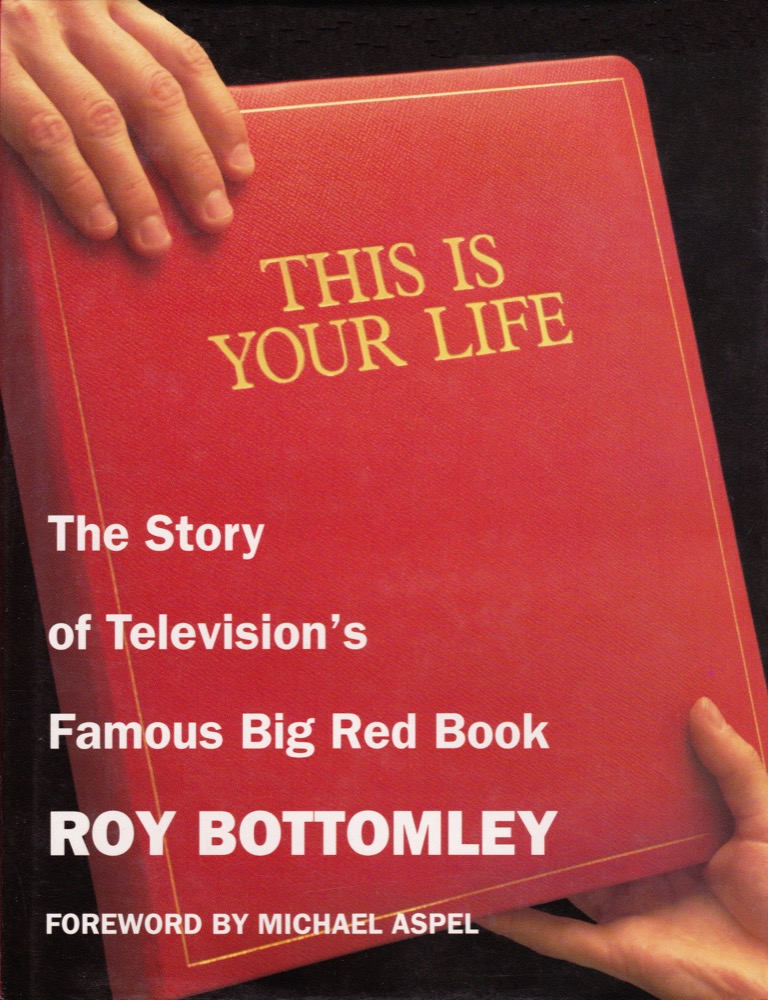
The Life shared the halcyon days of Welsh rugby in the Seventies, kicking off with the world's best fly-half – Barry 'King' John. Eamonn Andrews was waiting in the players' tunnel at Twickenham after the international against England on 15 January 1972.
John Dawe led the Welsh team on to the set, and scrum-half Gareth Edwards recalled his first international.
'How do you want the ball?' he asked 'King' John.
'You just chuck it, boyo, I'll catch it.'
Four years later we caught Gareth Edwards himself.
Series 12 subjects
George Best | Alfred Marks | Rolf Harris | Don Whillans | Sacha Distel | Les Dawson | Doris Hare | Keith Michell | David FrostBarry John | Michael Flanders | Charlie Williams | Ginette Spanier | Hughie Green | Tom Courtenay | Hylda Baker
Gordon Banks | Alan Rudkin | Michael Wood | Graham Kerr | Pauline Collins | Ray Illingworth
Patricia Hayes | Nosher Powell | Richard Briers | Lulu